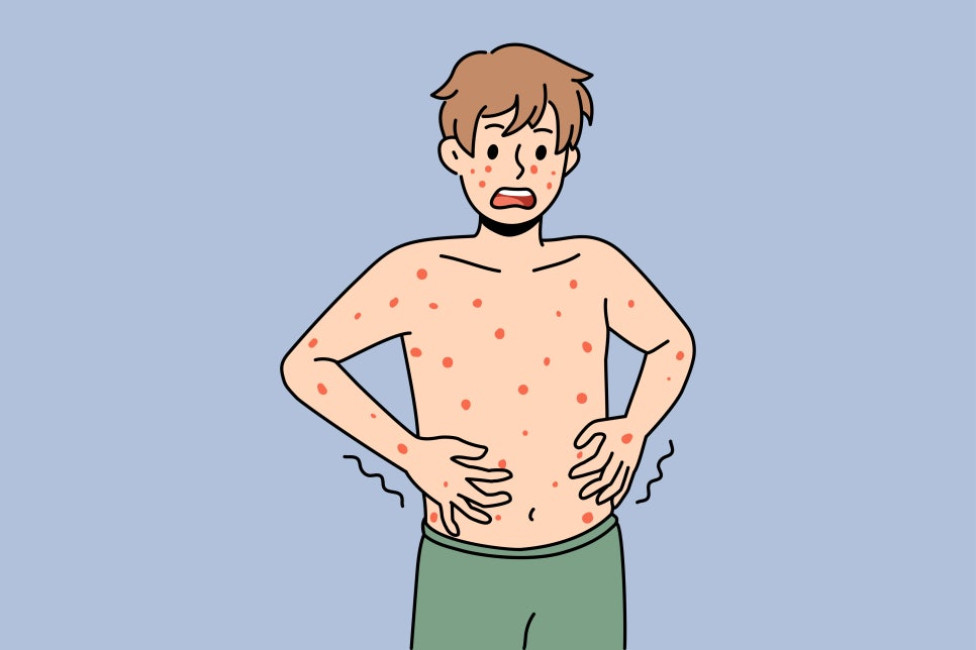Measles Symptoms and Prevention: A Guide for International Travelers

Traveling abroad? Your health is just as important as packing your bags. Recently, measles has been resurging worldwide. Are you aware of this?
Measles cases are rapidly increasing in Southeast Asian countries like Vietnam, the Philippines, and Malaysia, which are popular destinations for Korean tourists. This is raising concerns.
From 2024 to March 2025, 13 measles patients in Korea had a history of visiting Vietnam, and many were unvaccinated. To avoid contracting infectious diseases during your travels, it’s essential to know how to prevent them.
Today, we’ll explore what measles is, its symptoms, and how to prevent it.
Measles Outbreak: A Global Concern
Measles is currently spreading worldwide. According to the Korea Disease Control and Prevention Agency (KDCA), from December 2024 to March 2025, 13 out of 18 measles patients in Korea had visited Vietnam.
Specifically, all domestic measles cases reported between 2024 and March 6, 2025, were either imported from abroad or related to imported cases. Therefore, it’s crucial to be aware of measles when traveling internationally.
The World Health Organization (WHO) identifies countries like China, Vietnam, Cambodia, Laos, the Philippines, and Mongolia as measles-prone areas.
What is Measles?
Measles is a highly contagious respiratory infection caused by the measles virus and is classified as a Class 2 infectious disease.
It spreads through the air, and if you're not immune, there's a greater than 90% chance of infection upon exposure. This is even more contagious than COVID-19.
After an incubation period of 7 to 21 days, symptoms like fever and rash appear.
Once recovered, you gain lifelong immunity. Vaccination is an effective preventive measure.
Measles Symptoms
Measles symptoms typically appear sequentially from the early stages of infection.
After the incubation period, you may experience a high fever close to 40°C, along with coughing, runny nose, and red eyes.
This stage is highly contagious and lasts about 3-5 days.
Small, grayish-white spots (Koplik spots) may appear on the oral mucosa, a key indicator of measles.
Within 1-2 days of these spots appearing, a rash develops, spreading from behind the ears and neck to the face, upper body, arms, and legs.
The rash consists of small, red bumps that turn brown over time and eventually fade with skin peeling.
Symptoms gradually subside within 1-2 days. In some cases, swollen lymph nodes, abdominal pain, or enteritis may occur.
Special Attention for Infants and Young Children Traveling Abroad
Measles can be particularly dangerous for infants and young children.
Infants under 1 year old have underdeveloped immune systems and lower resistance to viruses.
This increases the risk of complications like pneumonia, otitis media, and encephalitis.
Infants under 12 months are not typically vaccinated. According to the KDCA, some measles patients who contracted the disease after traveling to Vietnam were infants too young to be vaccinated.
If you plan to travel with infants aged 6-12 months, get them vaccinated at least 2 weeks before departure. (Vaccination is not recommended for infants under 6 months.)
Some parents worry about vaccinating infants under 12 months before their scheduled vaccination date. While vaccination is generally safe, the antibodies received from the mother may interfere with the vaccine, reducing its long-term effectiveness.
According to the KDCA's measles Q&A, children vaccinated early for travel purposes should still receive the standard two doses at the regular intervals. It may seem unfair, but health comes first.
Measles Prevention: Vaccination
The best way to prevent measles is through vaccination. The MMR (Measles-Mumps-Rubella) vaccine, a national essential immunization, is about 97% effective in preventing measles.
The MMR vaccine protects against measles, mumps, and rubella, so parents should ensure their children receive it on schedule.
Two doses are required: the first at 12-15 months and the second at 4-6 years.
As mentioned earlier, even if a child is vaccinated before 12 months for travel, it's crucial to follow the standard two-dose schedule.
Adults in their 20s and 30s should check if they have received both doses of the vaccine. Since the two-dose vaccination program started in 1997, those born between 1982 and 1996 may have only received one dose.
Vaccination is a key part of staying healthy for safe travels!
Planning Safe International Travel?
Measles is preventable with the national essential immunization, available at many local clinics and hospitals.
However, if you're traveling to an unfamiliar destination or have limited access to health information about local diseases and endemic conditions,
Consider visiting a travel medicine clinic. Several university hospitals in Korea (including Seoul St. Mary's Hospital, Seoul National University Hospital, Chung-Ang University Hospital, and Haeundae Paik Hospital) offer these clinics.
For expert advice, vaccinations, and information on health considerations for your destination, consult with a travel medicine clinic.











Source :https://blog.naver.com/icmcseoul/223992395643
No comments yet.
